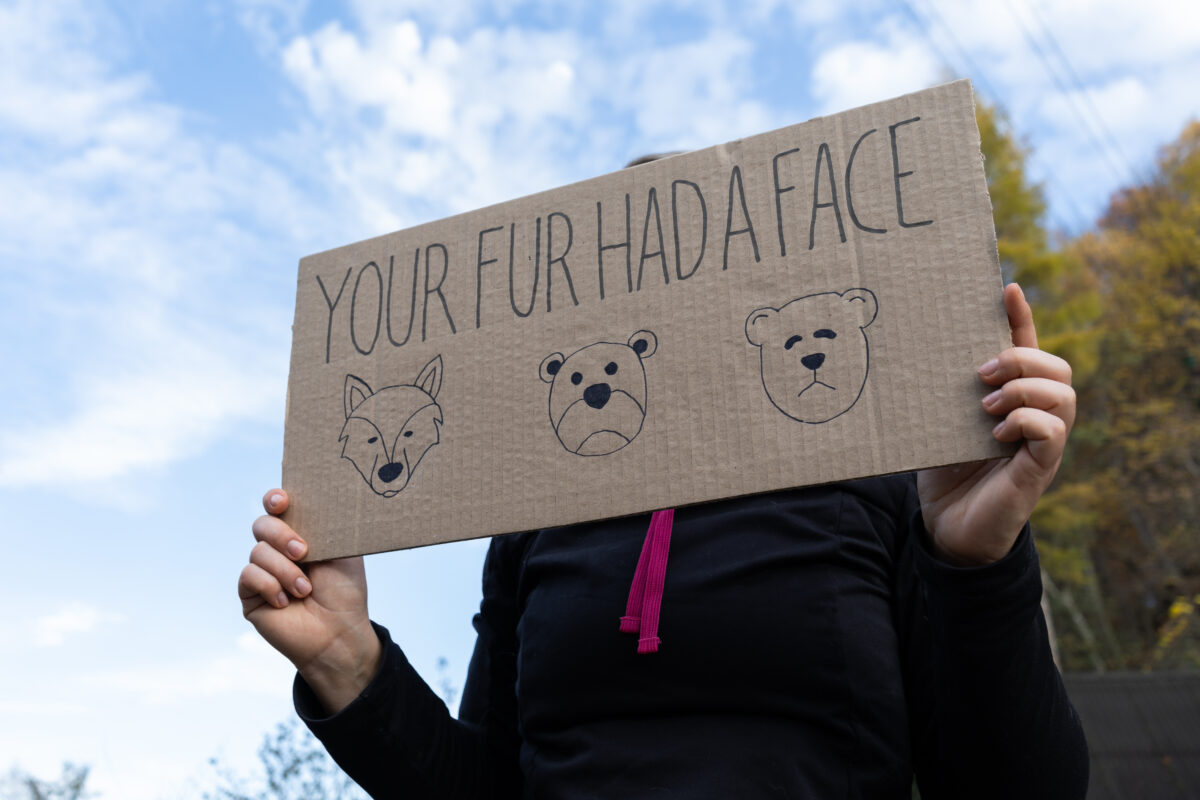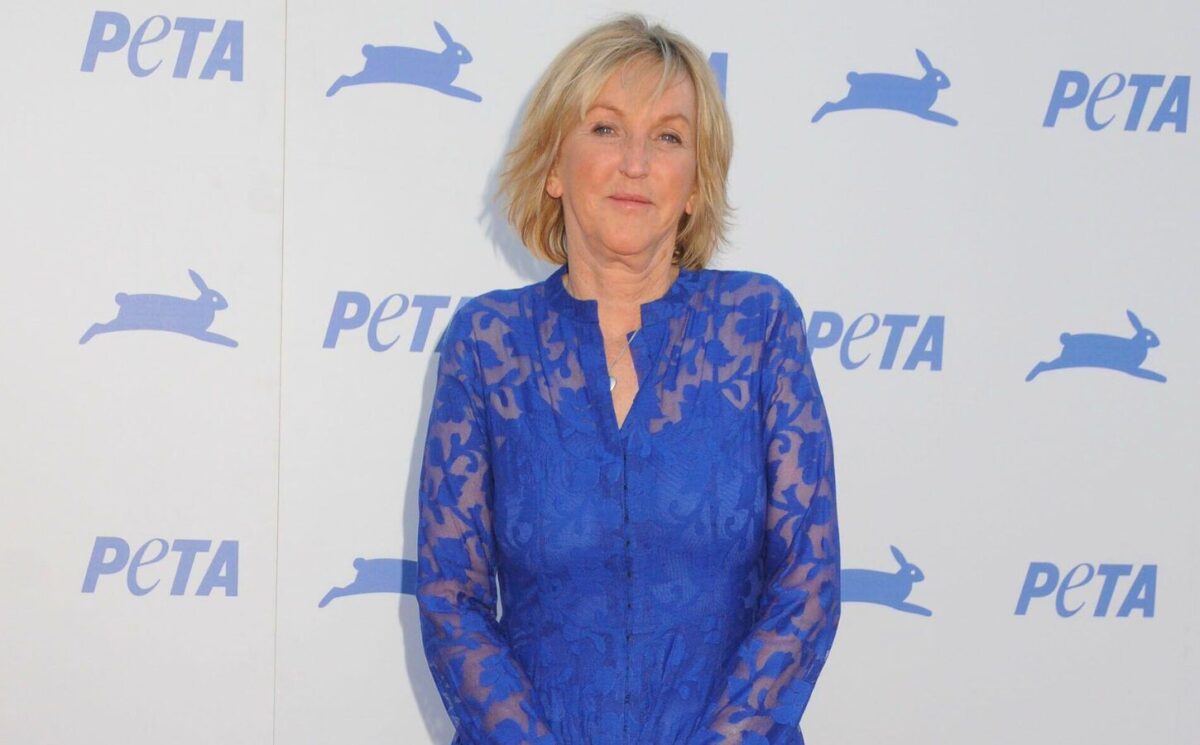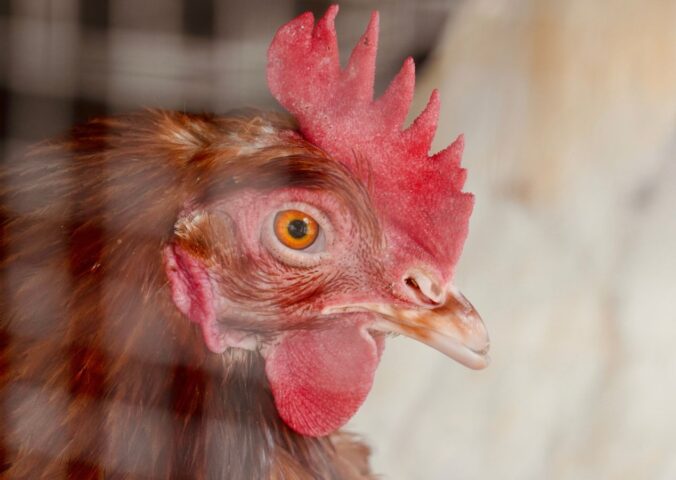Ingrid Newkirk, the president and founder of People for the Ethical Treatment of Animals (PETA), has said that she doesn’t think the nonprofit “went far enough.”
Newkirk made the comments in an interview earlier this month. She talked about some of PETA’s more controversial stunts and tactics, and noted how the media tends to focus on the high-profile and divisive actions rather than letters, lobbying, and litigation, which she said have always been part of her organization’s work, too.
Read more: UK Science Minister Proposes Plan To Replace Animal Testing With AI And 3D-Printed Tissue
Newkirk is both a widely-celebrated figure and a controversial one, much like PETA itself. “I have no regrets,” Newkirk told the Guardian. “I don’t think we went far enough.”
Newkirk co-founded PETA in 1980 with Alex Pacheco. Just over one year later, PETA’s undercover work at a behavioral science lab led to the arrest of Edward Taub, who was convicted of six counts of animal cruelty for his experiments on macaque monkeys. The incident is widely referred to as the “Silver Springs monkey case.”
A decade-long battle for custody over the monkeys followed, described by The Washington Post as a “vicious mud fight.” This extremely public back-and-forth was, in part, what turned a grassroots animal rights organization into the single largest of its kind. By 1991, PETA had a paid staff of 100, more than 350,000 supporters, and a budget of USD $7 million, which helped fund its work in the following years.
Some of PETA activists’ most notorious actions since then include applying blood to hands and donated fur coats at fashion shows,* appearing on the high street in chains and cages, throwing a vegan cream pie at former Vogue editor-in-chief and outspoken fur advocate Anna Wintour, and dumping a tonne of manure outside Gordon Ramsay’s restaurant after he talked about eating horse meat on The F-Word.
‘It’s just the shocking facts’
When asked about PETA’s tactics, Newkirk said, “You might say they are shocking, but it’s just the shocking facts.” The nonprofit has also carried out a variety of high-profile campaigns that employ different, but similarly attention-grabbing strategies, such as the 30-year-long “I’d Rather Go Naked Than Wear Fur” series. This featured famous animal advocates like Pamela Anderson, Dennis Rodman, Gillian Anderson, Taraji P. Henson, and many others, posing for billboards in the nude.
“As you know, the press likes the gawky, gimmicky, sexy bits, so that’s what we’re most associated with,” Newkirk told the Guardian. She later added, “We don’t want to put a tofu pie in someone’s face. We don’t want to take red paint onto a catwalk. I don’t enjoy it, I’d prefer it wasn’t like this, but I’m just showing the facts.”
Read more: UK Meat Industry Told To Phase Out CO2 ‘Stunning’ For Pigs Within Five Years
‘Chain yourself to the front of a Canada Goose store […] and you get coverage’

In addition to its hardline image in the mainstream, Newkirk’s PETA has also received pushback from the animal rights community, particularly for its arguably objectifying portrayals of women and historically high animal euthanasia rates.
A PETA spokesperson told Plant Based News (PBN) that some of the organization’s work takes place in “deeply impoverished areas” where “many, many people” cannot afford the cost of euthanasia. The spokesperson noted that PETA performs these services for free, while some other shelters may not accept animals who require euthanasia because it can undermine their live release statistics. “We can’t raise our statistics because we care more about relieving suffering.”
The spokesperson added that “PETA does more than most, if not all,” to reduce the need for euthanasia by running three large low-cost and no-cost spay and neuter clinics, with free sterilization for pit bulls and free transportation. The organization also conducts free spay and neuter clinics in Puerto Rico, Peru, Mexico, Romania, Ukraine, and Jordan.
With regards to community pushback against PETA’s portrayals of women, the spokesperson said that “if anyone, from a movie star to Lady Godiva to even 76-year-old Ingrid, wishes to use her body to make a political statement, it’s no one’s right to order us to cover up.” They continued, “That kind of diktat is what husbands, brothers, and boyfriends used to be able to demand, and defies a woman’s right to autonomy.”
In her interview with the Guardian, Newkirk said, “We lose members sometimes. […] They say we alienate. But you try talking to the press with a list of hard facts on white paper. It’s dull. It’s not news. Chain yourself to the front of a Canada Goose store and gotcha! You get coverage.”
Newkirk noted that one area of animal rights that has shown particular progress is that of fur and animal skins. She praised the work of vegan fashion designers like Stella McCartney and highlighted the nearly five decades of PETA campaigns on the subject. She described the current fashion of second-hand furs amongst younger people on social media as “a failing on our part,” but added, “I also believe it’s a trend, so not lasting; it’s for effect, and it’s flamboyant rubbish.”
Read more: Stella McCartney Unveils World-First Vegan Fashion Feathers
*This article was updated on December 2, 2025, to include additional context from a PETA spokesperson and to amend an error about PETA’s actions at fashion shows. A spokesperson told PBN that PETA has never “thrown blood on models or anyone else,” and instead, anti-fur activists have applied it to their own hands and to donated coats.






